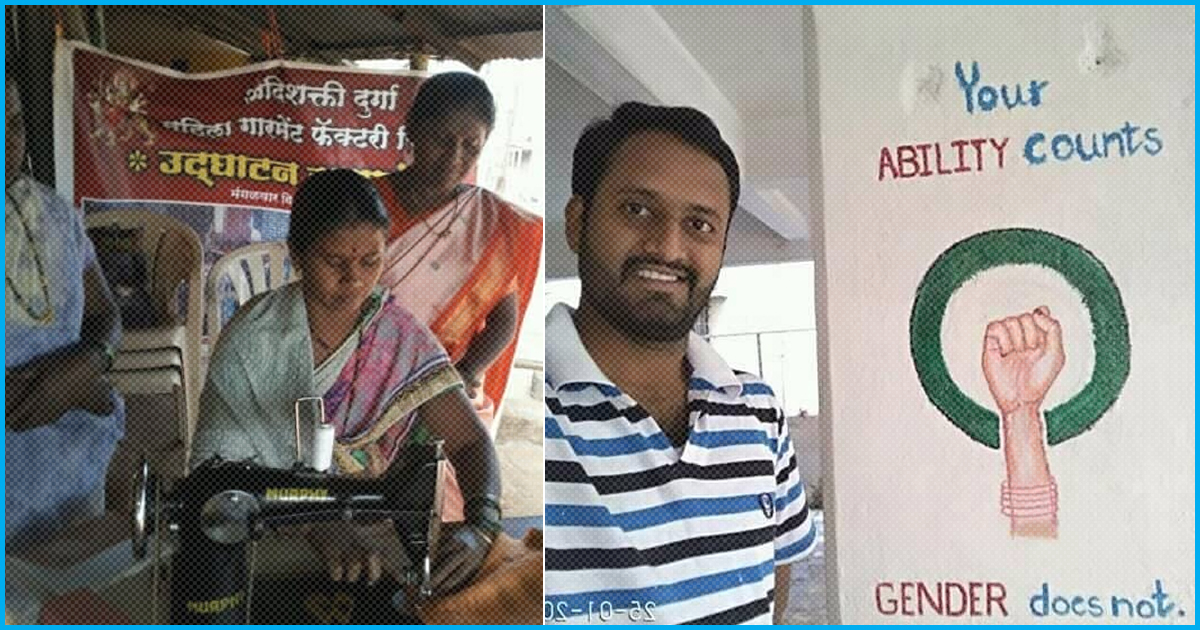Thanks to debates, discussions, activism and depiction in movies, the discussion surrounding menstrual hygiene among Indian women have just started to come to the fore. While access to women’s hygiene products in urban spaces have become easier, it continues to be a hassle in the country’s hinterlands.
Understanding women’s issues
Fortunately, 26-year-old law student, Sachin Asha Subhash from Pune, Maharashtra understood the problem which plagues menstruating women in rural India. By recycling old clothes, Samajbandh, the non-profit aims to provide a cost-free hygienic life to rural tribal women who cannot access or afford high-priced sanitary napkins.

Sachin spoke to The Logical Indian to explain his unique initiative. In 2016, the idea of working towards women’s health in India sparked after he was actively invested in social service which involved redistribution of used clothes among the underprivileged. This urge to make reusable cloth pads became stronger after his mother had to undergo surgery to remove her uterus for not taking proper care during her menstrual cycle.
He said, “Two years ago, a few of us had conducted crude research to understand the problems faced by rural women.” During the course of their research, Sachin realised that even if sanitary napkins are sold at affordable prices, women will be hesitant to buy it, owing to accessibility and the taboo that still surrounds menstruation.
An eco-friendly alternative
Sachin wanted to provide an easy yet eco-friendly solution to the problem. While still in his second year of college, he ordered samples of commonly found sanitary napkins and cloth pads to study and then formulate the best possible alternative. He said, “It took nearly seven months to come up with the reusable cloth pads.”
From then on, Sachin did not look back. The student had by 2017 turned to a social entrepreneur of sorts. “We collect used clothes from the city and then use these clothes to stitch cloth pads which are then distributed to tribal women near Pune free of cost.” Sachin’s organisation, which has a wide network of volunteers, including women’s health doctors, employs three women in the processing unit in Pune. Each cloth pad takes up around half a meter of material and needs to be disposed of once every six months.

“The cloth pads are 20-layers strong to provide protection against leakage and looks like a handkerchief when opened up so that women can dry them without feeling ashamed.” The organisation manufactures around 4000 cloth pads a month, using sewing machines, and over the last two years, Sachin and his organisation have been able to reach over 2000 tribal women.
Not only that, but Sachin, through his menstrual health advocacy, has also been educating rural women about the importance of menstrual hygiene, adoption of cloth pads over the harmful disposable ones and disposal of used napkins as well. While the pads are free of cost, Sachin pays for his employees by selling cloth bags made from scrap clothes.
Going forward, Sachin wishes to form self-help women’s group in villages. He said, “These women will make pads, earn a living and even provide eco-friendly cloth pads to more and more rural women.”
The Logical Indian appreciates Sachin’s efforts in providing an eco-friendly alternative to sanitary napkins and for educating rural women on hygiene.
Also Read: Advocating Menstrual Health In Jharkhand’s Tribal Area, Meet PhD Student Srilekha Chakraborty












